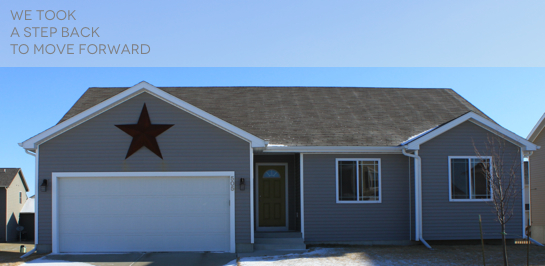Goodbye, Second Mortgage!
 Sometimes we have to take a step back before we can move forward. In this instance I'm talking about our finances. In case you're new, or unfamiliar with the baby steps, let's review:
Sometimes we have to take a step back before we can move forward. In this instance I'm talking about our finances. In case you're new, or unfamiliar with the baby steps, let's review:
Dave Ramsey's Baby Steps
- $1,000 emergency fund
- Pay off debt using debt snowball
- Save 3-6 months expenses
- Invest 15% for retirement
- College fund for children
- Pay off home early
- Build wealth and give
These baby steps are super helpful and provide a great blueprint to financial peace. Sometimes life happens and our decisions don't always line up with these baby steps. We've followed pretty closely thus far on our journey, but this year has been full of transitions.
We completed baby step #3 in January, but we still had a second mortgage hanging over our heads. So in March we decided to take advantage of the great mortgage percentages and refinance. In order to do so, we had to have our house assessed. A big shocker was when we found out it had lost 15% of its value since we purchased it five years ago!
We were still able to refinance, but we had to split the mortgage in order to avoid paying mortgage insurance. That left us with a first mortgage at a rate of 2.78% and a second mortgage of $10,000 at 5.5%.
Fun fact: The first time we left the house just the two of us after Rooney was born was to sign refinance papers!
Kelsey's parents brought up the conversation with us about using our emergency fund to pay off the second mortgage because we weren't earning interest on it in our savings account anyway. A novel idea, but it was hard for us to take that step backward. Nobody wants to have to retrace their steps, and we had worked very hard to get past baby step #3.
Then I realized it was probably for the best and we just had to think of it as part of our debt snowball that we missed. Dave Ramsey goes either way on the issue of the second mortgage; you can add it in with the debt snowball or wait until baby step #6 to attack it. When we started to look at the numbers, it just made sense to pay it off now.
Our emergency fund took a hit, but we still have 2.5 months of expenses saved, and now we have an extra $109/month and we are no longer paying 5.5% interest.
It was a good lesson for us in thinking outside the box and to exhaust all options when it comes to our financial journey. This isn't the first time we've taken a step back to move forward. We used to have student loans and a Jeep loan, and $6,000 in savings. We decided to pull $5,000 from savings to pay down our debt, and then use the extra monthly income to pay down other debts, until it was gone. That way we weren't "watering down" our progress.
There isn't one plan that will work for everyone, and you have to do what you feel best in your situation.
Have you ever called an audible on your financial plans? What did you learn?
